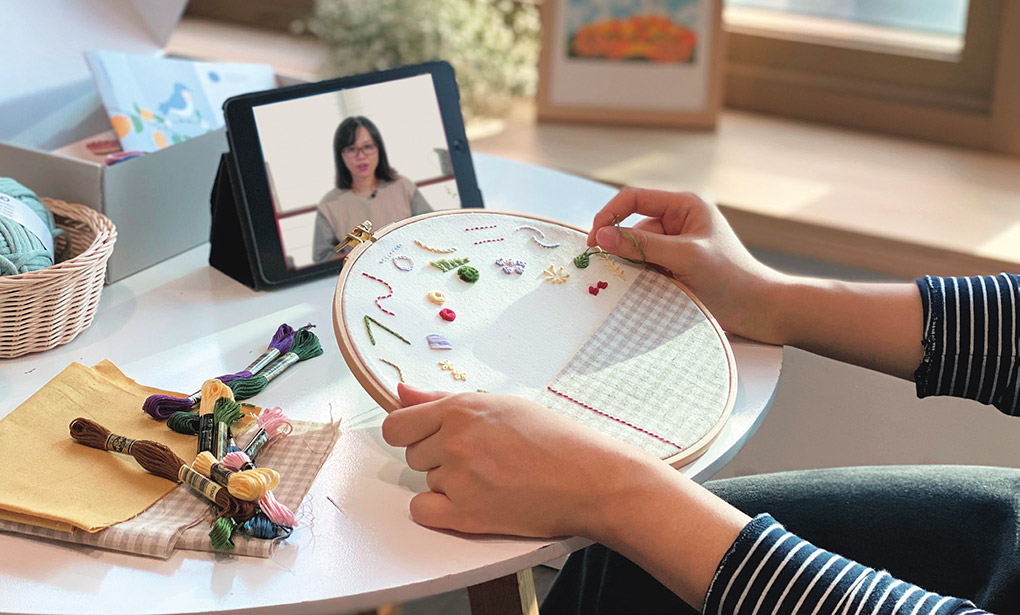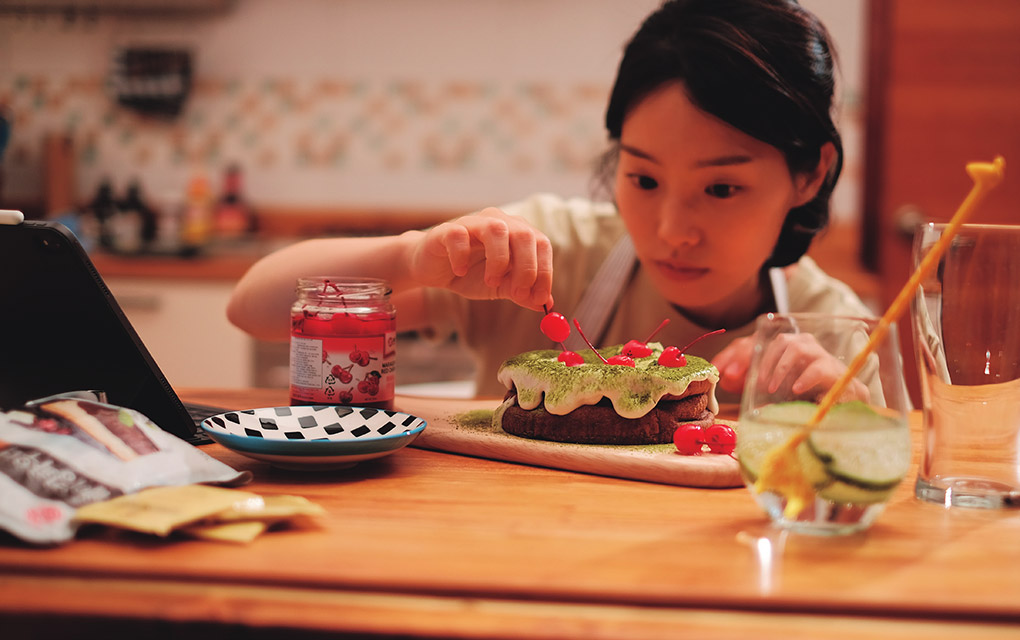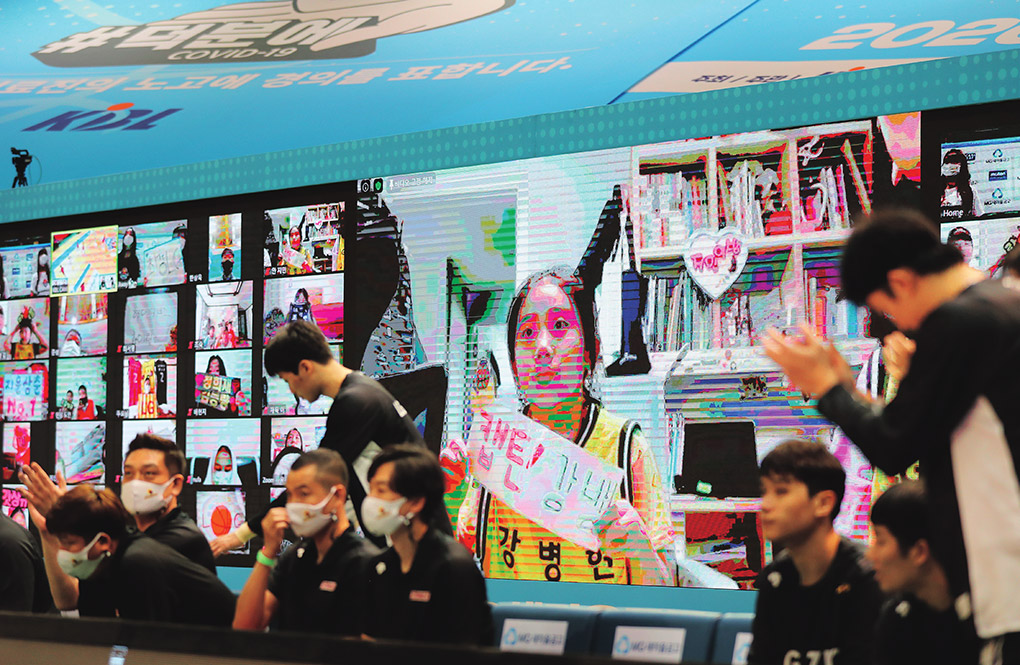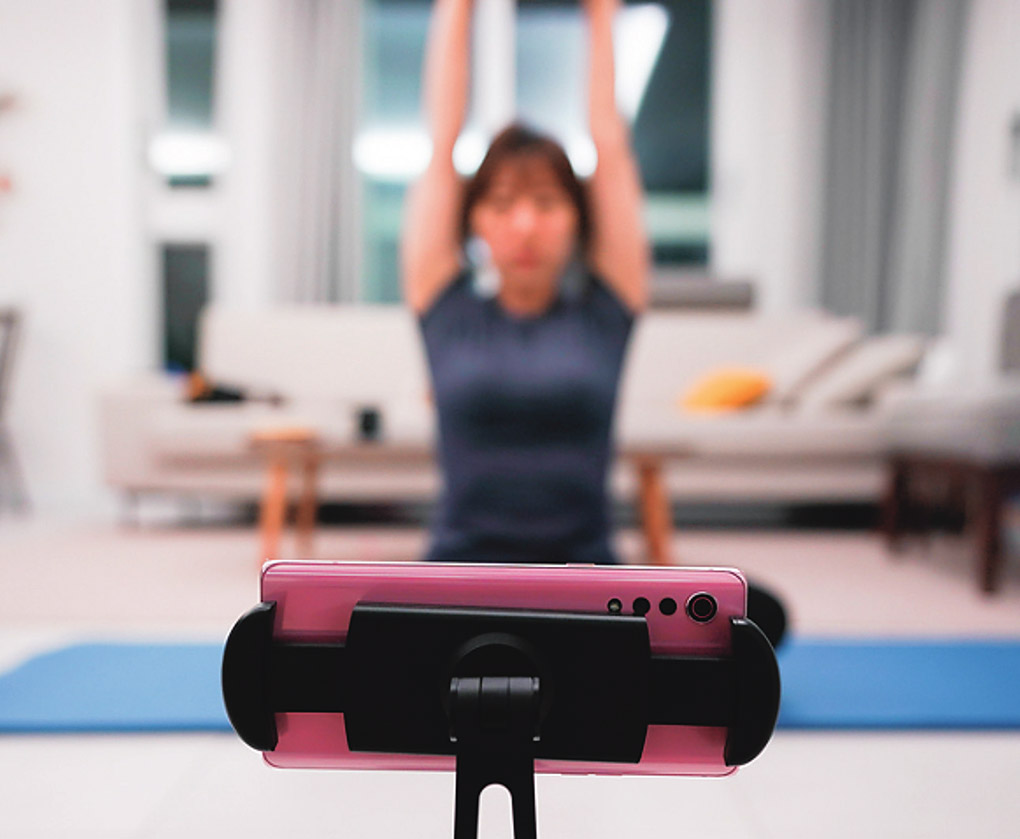In 2019, small groups sharing hobby-related activities became popular in Korea. Young adults in particular bought into this “salon culture.” While the COVID-19 pandemic has halted in-person gatherings, undaunted hobbyists are still staying connected.

Embroidery is a popular selection on Hobbyful, an online learning platform. Hobby and pastime sites have mushroomed as the COVID-19 pandemic forces people to limit social interactions and spend more time at home. © hobbyful
Lee, an office worker in his 30s, relishes sniffing and tasting wine. The pleasure doubles when it’s done alongside other wine connoisseurs.
In 2019, he joined a small club of wine enthusiasts to broaden his knowledge. The club, consisting of a dozen men and women in their 30s, met every Friday evening in Mapo, a commercial-residential district along the Han River in Seoul. Each week, the members quickly moved from small talk to sipping and discussing varieties of wines.
Lee once dreamed of flying to Switzerland to indulge in a good bottle with tasty cheese.
He has yet to visit the Alps, but spending time with other wine aficionados proved to be an engaging alternative. Besides, there was the bonus of socializing. The members of the club were in his age range and there was a good gender balance. Everyone looked forward to ending their workweek with fine wine in a warm, amiable atmosphere. Then COVID-19 erupted.
“Nobody knows when we can meet again,” Lee says. “If this is a dream, I just want to wake up soon.”
Amid pandemic-related curbs on social interaction, Lee’s wine tasting hiatus has lengthened and memories of the club are growing dim. Even in 2021, he still can’t do much more than sip wine alone and perhaps watch offerings on Netflix. At times, he does even less; he admits to spending time simply sitting absentmindedly on his sofa after his workday.

Home baking attracts wide attention among online learners. Online hobby lessons are geared toward a broad range of hands-on experiences with arts and crafts for self-enrichment and home application. © CLASS 101

Fans cheer for their teams during a Korean Basketball League game between Ulsan Hyundai Mobis Phoebus and Changwon LG Sakers, held on September 20, 2020. Unable to attend games in person due to COVID-19, fans gathered in small groups to watch them online together during sports seasons. © Yonhap News
Salon Culture
Lee’s wine club was among a myriad of groups organized around shared interests in 2019. This so-called “salon culture” included a wide scope of interests, with people in their 30s being especially active. Reading, movies, travel, cooking and music were among the top activities for these social communities.
In April 2019, Embrain Trend Monitor, a local market researcher, conducted a national poll of 1,000 people aged 19-59 to gauge their participation in social activities. Among the respondents, 906 said they were engaged in a regular activity, and 26 percent of them said their activity entailed “meeting a multitude of unspecified people with the same interests and hobbies.” That cohort was less than half of the number of respondents who said their social activities primarily took place with former classmates or coworkers, accounting for 67.6 percent. But other responses suggested that salon culture was gaining traction. Some 290 respondents stressed the need to take part in gatherings that focus on hobbies or interests.
Travel is, by far, the activity that people would like to share most with others: 73.5 percent of respondents said they wanted to join travel clubs. Next came sports clubs (18.1 percent), foreign language clubs (15.9 percent), volunteering clubs (15 percent), film clubs (14.3 percent), and reading or writing clubs (14.1 percent).
This seems to have something to do with the social phenomenon of individualization; more and more personal relationships nowadays revolve around “me,” and “my” hobby and interests are important preconditions for interpersonal connections.
Although interpersonal warmth and body language are difficult to convey via virtual meetings, opinions flow easily. Many members still rate their participation as “interesting” or “useful.”
Online Gatherings
COVID-19 upended the new trend in social culture but many enthusiasts refuse to become disconnected. Video conferencing adopted by workplaces to cope with social distancing has transferred equally to non-work purposes.
“We’re going to keep our club alive with Zoom, an online chat program,” one book club announced.
The Seoul-based club made the announcement to their 67 members through an app dubbed “Somoim,” meaning “small gatherings.” It followed the government’s tighter lockdown controls in the capital region late last year. The club’s idea was to have members meet online to exchange their book reviews.
A similar format is also being employed by writing clubs, which ordinarily see members gathered at a table to share their prose. One Seoulbased writing club with 234 members set up meetings through Google Meet. Although unfamiliar with virtual meetings at first, the participants soon adapted to their new environment , sharing online the stories they had written.
Other social gathering platforms for hobby enthusiasts include “Munto,” “Moonraedang,” “Trevari” and “Frip.” They call themselves “social salons.”
Trevari, a book discussion platform, is an old hand in the online social community. It opened in 2015 and currently comprises about 400 book clubs with some 6,000 total users.
Most of the members read a book and join four meetings per month. Although interpersonal warmth and body language are difficult to convey via virtual meetings, opinions flow easily.
Many members still rate their participation as “interesting” or “useful.”
Frip is a social platform for a variety of hobbies and leisure activities, such as cooking, pottery making, mountain climbing and DIY, among others. Cooking club members not only prepare dishes, they demonstrate best practices for maintaining proper hygiene and preventing COVID infections. Offline activities are inevitable for cooking clubs that require special utensils and food ingredients as well as a kitchen. Sports clubs like those for mountain climbing and trekking are complying with the ban on private gatherings of more than four people. Under these circumstances, some cooking and sports clubs conduct programs both on and offline.
Meal kits are delivered to members at home, while activities such as a hike or long swim are shared online with other members.

COVID-19 lockdowns of gyms have forced people to exercise at home. They have a wealth of new athome workout programs that can be downloaded onto their smartphones for easy reference. © LG Uplus
A Private Experience
I decided to take part in an online class myself.
I had zero knitting experience but that didn’t stop me from ordering a tea mat knitting kit from Frip. I was confident that I could quickly knit a tea mat by watching an online instructor.
However, frustration soon arose; the instructor’s hands moved too quickly for me to follow.
After fumbling my spool of yarn and knitting needles several times, it dawned on me that in-person classes would be a much better way to learn how to knit. My plan to enjoy a cup of coffee set on a pretty mat I’d knitted by hand unraveled with me hardly getting a stitch in. I concluded that I’d do better to buy a tea mat.
Other beginners could feel similarly frustrated, but the threshold might not be as high for non-novices. As for me, I’ve stowed my yarn in a drawer for a post-pandemic, offline class.